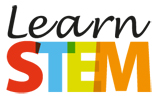About Learn STEM, the European Alliance for Innovative STEM learning in schools:
STEM is more than just a grouping of subject areas. It is a movement to develop the deep mathematical and scientific underpinnings students need to be competitive in the 21st-century workforce.
But this movement goes far beyond preparing students for specific jobs. STEM develops a set of thinking, reasoning, teamwork, investigative, and creative skills that students can use in all areas of their lives. STEM is not a standalone class – it is a way to intentionally incorporate different subjects across an existing curriculum.
STEM lessons often seem similar to science lessons and experiments, and in some ways, they are. After all, genuine science experiences are hands-on and inquiry-based.
In the PISA 2015 survey most students expressed a broad interest in science topics and recognised the important role that science plays in their world; but only a minority reported their participation in science activities. In addition, teachers still declare they need more professional development linked to tailoring, diversifying, and innovating teaching practices.
Thus, Learn STEM supports and contributes to the key objective of the European Education and Training 2020 Strategy (ET 2020) that fewer than 15% of 15-year-olds should be under-skilled in reading, mathematics and science.
Moreover, the Learn STEM project will also address the need to improve the quality and efficiency of education and training as well as to enhance knowledge of and about science as a precondition to prepare Europe’s population to be actively engaged, responsible citizens as well as conversant with the complex challenges facing society.
The European Alliance Learn STEM focuses their interrelation and integration in cross-disciplinary and reflective STEM education and pedagogical methodologies. Main goal of Learn STEM is to improve the quality and efficiency of STEM learning in secondary schools. Consequently Learn STEM aims at increasing the pupils’ interest in STEM and building STEM competences
Furthermore, Partners identified different experiences and practices regarding the innovative models for teaching STEM in secondary schools, but they consider it is still necessary to implement a comprehensive approach that focuses on technological innovation (e.g., flexible pedagogies), but also on other aspects, such as: the relationship between students and teachers, between students and students; involvement of parents and also other stakeholders (e.g., local community, business sector, NGOs, policy makers) in the different phases of education; collaborative learning environments; inquiry based learning, etc.
Learn STEM aims at strengthening secondary schools capacity to develop skills in subjects such as science, technology, engineering and mathematics through innovative and interactive pedagogical methods and approaches. The project will provide teachers and schools with a pedagogical model and educational tools to support pupils to connect with the ‘real-life’ applications of STEM, in particular related to Internet of Things (IoT) and robotics, which represent two very popular sectors in the technological field.
The results of the project will be the Learn STEM Pedagogical Model, an ICT based training programme and an Inquiry learning package which are workable and possible to implement in different educational and non-educational contexts. All these contents will be integrated in an online learning environment – developed within the project – and offered as a free online course for secondary schools teachers.
Under the lead of the Open University of the Netherlands, Learn STEM project brings together 9 Partners from 6 European countries (NL, LT, IT, DE, PT, BE), forming a transnational cooperation partnership including experts with professional expertise in the field of teaching STEM, secondary schools, VET institutions and developer with technical knowledge and expertise:
- OPEN UNIVERSITY OF THE NETHERLANDS, the Dutch university for open distance and online education carrying out research and development work on technology enhanced learning (ou.nl/en/welten-institute);
- AGORA ROERMOND, a non traditional secondary Dutch school where students learn by their curiosity and without a prefixed curriculum (agoraroermond.nl);
- KAUNAS SCIENCE AND TECHNOLOGY PARK, the largest partner of science and business cooperation in Lithuania (kaunomtp.lt);
- KAUNO SIMONO DAUKANTO PROGYMNASIUM, a Lithuanian non traditional secondary school which structures education system based on practice (daukantas.kaunas.lm.lt);
- EFFEBI ASSOCIATION, the methodological project coordinator, with a consolidated experience in developing research activities on Lifelong Learning (asseffebi.eu);
- UNIVERSITY OF APPLIED SCIENCES WILDAU, the largest of four universities in the state of Brandenburg and among the 3 best Universities of Applied Sciences with respect to research per professor in Germany (th-wildau.de);
- MADAN SCIENCE PARQUE, a Portuguese science and technology park whose core activity consists in the development of knowledge intensive projects within the region (madanparque.pt);
- AGRUPAMENTO DE ESCOLAS EMIDIO NAVARRO: it encompasses seven Portuguese schools covering all levels of education, from kindergarten to secondary school. The teaching work in the various disciplines can provide the implementation of pedagogies that point to educational innovation (aeen.pt);
- EEKHOUT ACADEMY, a national and international Belgian in-service training (IST) organization for schools (http://home.eekhoutacademy.be).
